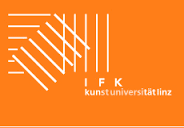Joking Relationships in Capitals of Modernity: Uncles and Nephews in Diderot, Marx, Althusser, Miller, and Bernhard
-
Duration
1 March 2015–30 June 2015 -
Lead Partner
IFK International Research Center for Cultural Studies, Vienna
-
Project Leader
-
Financial Source
IFK

Joking relationships between uncles and nephews are the royal road to pre-modern communities. As these kinship communities demand affection toward one’s female relatives and distance toward one’s male relatives, the relation toward one’s mother’s brother demands both affection and distance. This contradiction is resolved by a compromise called joking relationships between uncles and nephews. In modern societies, this crucial role is attributed to the state. Yet uncles and nephews remain key for such modern texts as Denis Diderot’s Rameau’s Nephew, Karl Marx’s The Eighteenth Brumaire of Louis Bonaparte, Louis Althusser’s The Future Lasts Forever and Jacques-Alain Miller’s Lacan’s Nephew. Diderot’s philosophical materialism, Marx’s historical materialism, and Althusser’s and Miller’s structuralist materialism respectively address the pre-1789, post-1848 and post-1968 Paris by tackling the nephews of the composer Rameau, Napoleon, an elder Althusser and Lacan. Finally, just as the topic seems to die out, Thomas Bernhard moves it from Paris to Vienna with his Wittgenstein’s Nephew.
Habjan, Jernej. Pre-Modern Joking Relationships in Modern Europe: From Le Neveu de Rameau to Le Neveu de Lacan. Canadian Review of Comparative Literature / Revue canadienne de littérature comparée 42.4 (2015): 370–81.